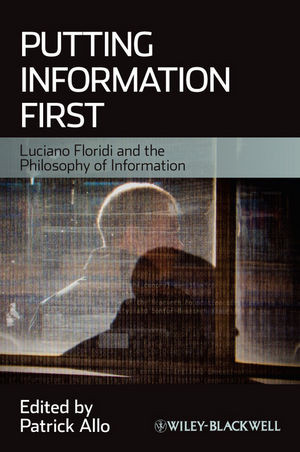

Most ebook files are in PDF format, so you can easily read them using various software such as Foxit Reader or directly on the Google Chrome browser.
Some ebook files are released by publishers in other formats such as .awz, .mobi, .epub, .fb2, etc. You may need to install specific software to read these formats on mobile/PC, such as Calibre.
Please read the tutorial at this link: https://ebookbell.com/faq
We offer FREE conversion to the popular formats you request; however, this may take some time. Therefore, right after payment, please email us, and we will try to provide the service as quickly as possible.
For some exceptional file formats or broken links (if any), please refrain from opening any disputes. Instead, email us first, and we will try to assist within a maximum of 6 hours.
EbookBell Team

0.0
0 reviews• Contains eight essays by leading scholars, a reply by Luciano Floridi, and an epilogue by Terrell W. Bynum
• Explains the importance of philosophy of information as a specific way of doing philosophy
• Focuses directly on the work of Luciano Floridi in the area of philosophy of information, but also connects to contemporary concerns in philosophy more generally
• Illustrates several debates that arise from core themes in the philosophy of information
CONTENTS
• Chapter 1 - Putting Information First: Luciano Floridi and the Philosophy of Information (pages 1–8): Patrick Allo
• Chapter 2 - The Value of knowledge and the Pursuit of Survival (pages 9–32): Sherrilyn Roush
• Chapter 3 - Knowledge Transmissibility and Pluralistic Ignorance: A First Stab (pages 33–44): Vincent F. Hendricks
• Chapter 4 - Meeting Floridi's Challenge to Artificial Intelligence from the Knowledge?Game Test for Self?Consciousness (pages 45–65): Selmer Bringsjord
• Chapter 5 - Information without Truth (pages 66–83): Andrea Scarantino and Gualtiero Piccinini
• Chapter 6 - Information and knowledge a la Floridi (pages 84–96): Fred Adams
• Chapter 7 - Abstraction, Law, and Freedom in Computer Science (pages 97–115): Timothy Colburn and Gary Shute
• Chapter 8 - Structuralism and Information (pages 116–130): Otavio Bueno
• Chapter 9 - Why Information Ethics must begin with Virtue Ethics (pages 131–152): Richard Volkman
• Chapter 10 - The Philosophy of Information: Ten Years Later (pages 153–170): Luciano Floridi
• Chapter 11 - Philosophy in the Information Age (pages 171–193): Terrell Ward Bynum